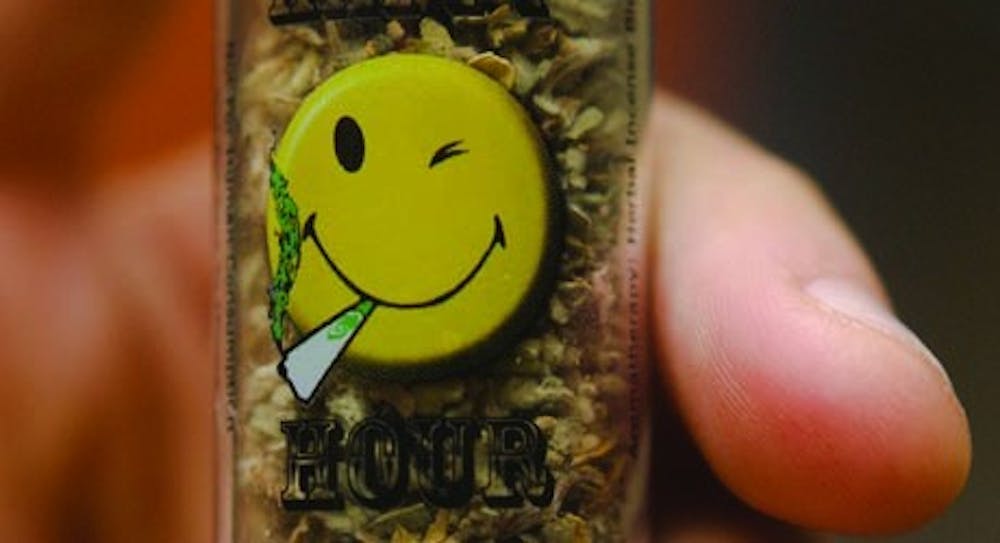When Matt Heinz watched a group of people drag their friend into the Tucson Medical Center, he noticed something right away.
"He was having trouble speaking and having uncontrolled jerking movements of his extremities," he said, adding that it looked like a seizure or a stroke.
The man and his friends had been smoking Spice, a controversial new legal drug that mimics the high of marijuana.
After this incident, Heinz, who works at the Tucson Medical Center, decided Spice should be subject to regulations.
As a member of the state House of Representatives, Heinz, D-Tucson, wants to draft legislation to add Arizona to the growing list of states that have already banned or placed restrictions on Spice, the most popular brand name of the "herbal smoking blend."
Eleven states have outlawed the substance this year.
Heinz said the danger is in not knowing what it can do to the body in the short or long term.
Usually marketed as incense, Spice is a mixture of herbs that is sprayed with one of many different chemical compounds that, when ingested, trigger marijuana-like effects. Sellers and even the packaging warn that the product should not be consumed.
Heinz said the friends of the man who was admitted to the hospital all had no negative side effects.
"That underscores the point that you have no idea what the individual response of our bodies are going to be,” Heinz said.
Some believe that standard drug tests can’t find Spice, a notion Heinz said is incorrect.
"There are tests to find [Spice], of course," Heinz said, adding that the problem is that not all tests are looking for it.
James Harvey, a local rapper known as "J-Kris," said he first tried Spice because of the hype.
"I wondered what was going on with this — this mystery chemical that got you high — so I smoked a bowl of it," Harvey said.
He began to develop cottonmouth, and his eyes felt glossy and turned red, he said.
"I just felt like I was getting stoned," Harvey said. But soon after, Harvey started to get headaches.
"It almost felt like a migraine," he said.
For Steven Proctor, education coordinator for the ASU chapter of the National Organization for Reform of Marijuana Laws, a student group that advocates for the legalization of marijuana, it's the ingredients in Spice that make him wary.
Proctor said he has seen some frightening side effects, most of which he believes come from people ingesting herbs sprayed with the chemical JWH-018, a synthetic compound found in Spice.
"Someone [was] either passing out, getting a bad headache or throwing their guts up," he said.
Det. Parker Dunwoody of the ASU Police Department and a former member of the Tempe Drug Task Force, said the dangers are clear.
"A number of people have succumbed to seizures, and at least one person has died from it, directly linked to the use of Spice,” Dunwoody said.
Reach the reporter at kpatton4@asu.edu





